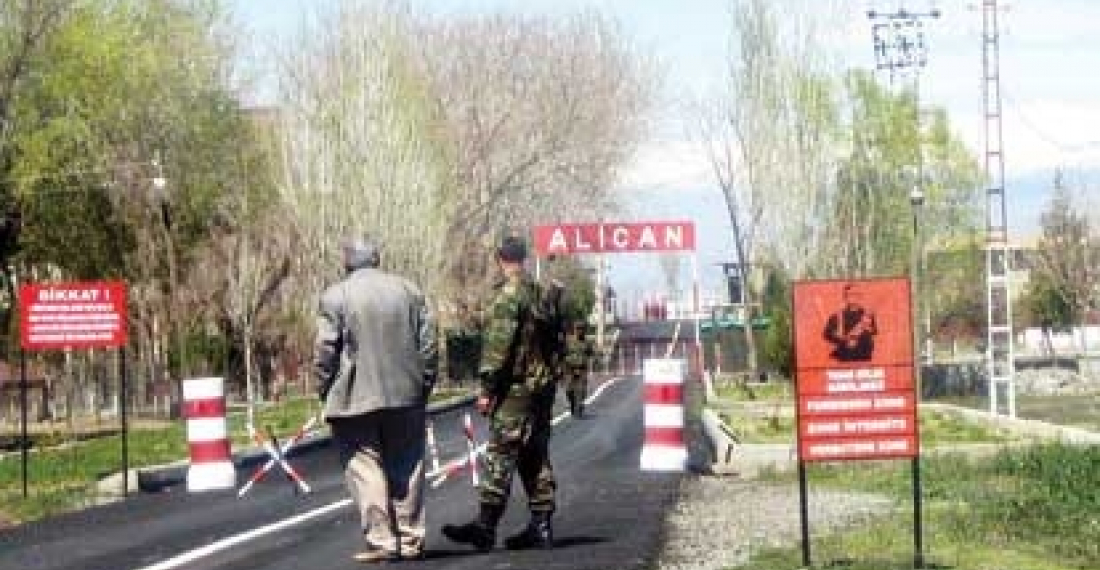Five representatives of Armenian NGOs currently visiting Turkey as guests of the Turkish think-tank TEPAV yesterday met the Turkish Foreign Minister Ahmit Davitogluy in Ankara. According to Hurriyet Daily News the Minister assured the visiting Armenians that Turkey’s eastern frontier with Armenia will eventually reopen for cross-border traffic.
“The Turkish foreign minister is sure the border will open sooner or later, so we can come back to Turkey and visit historical sites,” Arthur Ghazaryan of the Union of Manufacturers’ and Businessmen of Armenia told the Hürriyet Daily News on Monday following a meeting with Turkish Foreign Minister Ahmet Davutoğlu in Ankara. A five-member Armenian group, including business and nongovernmental leaders, met with Davutoğlu and Foreign Ministry Undersecretary Feridun Sinirlioğlu to discuss the Turkish-Armenian normalization process and the currently stalled talks on the matter, participants told the Daily News.
“We asked the minister when the process will restart,” said Mikayel Hovhannisyan of the Eurasia Partnership Foundation. “Unfortunately I did not receive any exact date but I received assurance that the Turkish side will implement necessary steps to that end.”
The group told the foreign minister that Armenian society and even the international community were expecting Turkey to move on.
“We said the ball is in Turkey’s court. Armenia is waiting for Turkey to play ball,” said Ghazaryan. “Turkish-Armenian relations are like a train starting to move,” said the Institute for Civil Society and Regional Development’s Aghavni Karakhanian, another Armenian attending the meeting. “There is no reverse we can only go forward. We cannot stop the moving train.”
The Armenians said they were impressed by the open and frank discussions at the ministry. Richard Giragosian of the Regional Studies Center said he was first impressed by the “amount of time” the ministry gave them and the fact the foreign minister was “very forthcoming.” “I was impressed by the quality of Davutoğlu and his open and frank exchange with us.”
The 1915 events were also discussed during the meeting. The visiting group said there was much more awareness in Turkey now compared to a couple of years ago. Giragosian said he told Davutoğlu the mental border was open between the two neighboring countries despite the sealed border – something the foreign minister agreed on, he added.
source: Hurriyet Daily News
photo: Turkish Armenian border; photo courtesy of Hurriyet Daily News
News
Turkish Foreign Minister assures Armenian NGOs border will be open sooner or later






